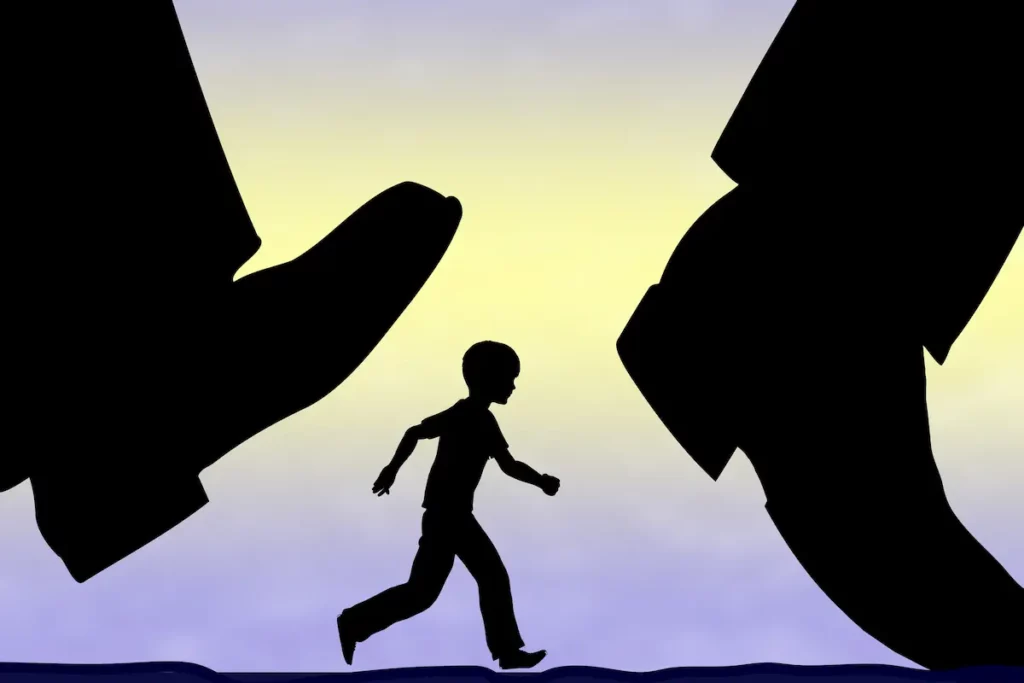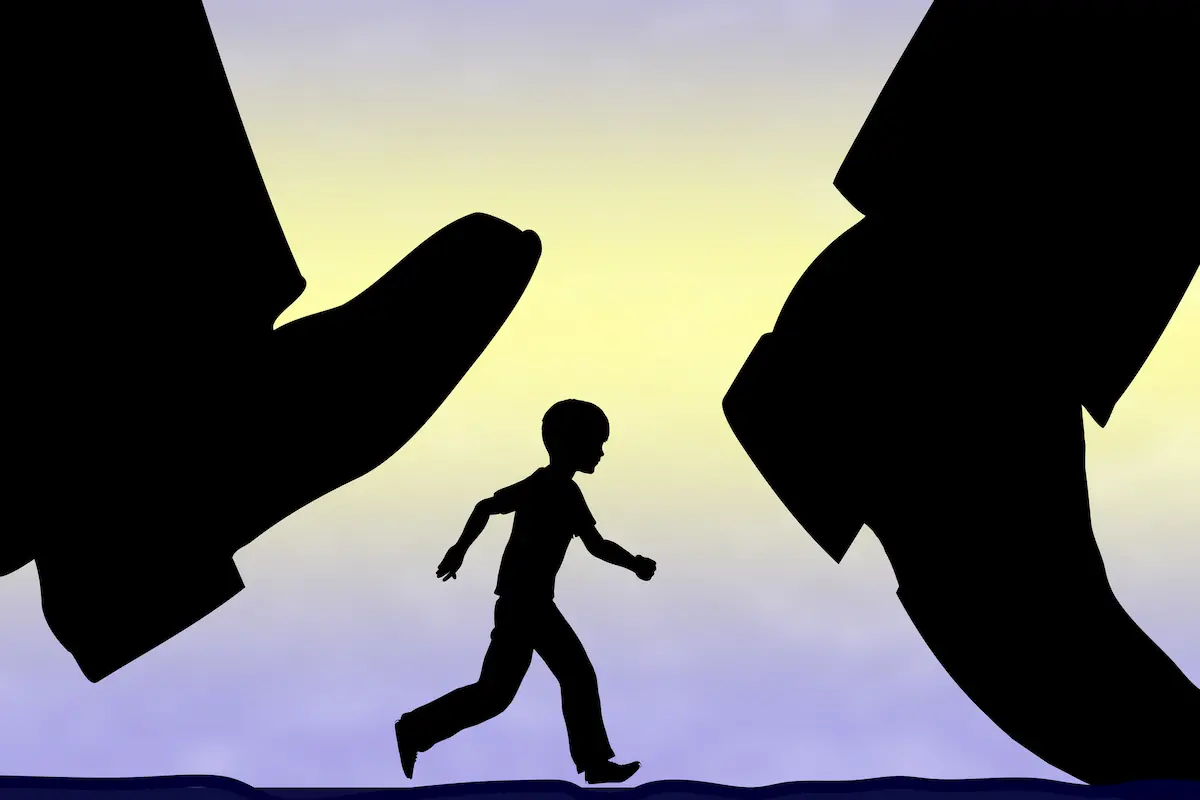Long-term effects of free-range parenting may include government intervention for leaving young children alone. It also runs the risk of too much-deciding power on the part of the child, causing irresponsible and reckless behavior when not supervised. Without guidance, a child may struggle with psychological challenges.
Free-range parenting carries with it the stigma of abandonment and neglect that most parents do not receive well. New or experienced parents will tell you that there is no clear-cut method for raising a child, but what are some long-term effects of free-range parenting? How does it compare to helicopter or snowplow parenting?
While free-range parenting is not suited to every household, it, along with helicopter parenting and snowplow parenting, has real consequences for our children. Let’s explore how they compare and examine our own parenting styles to see where we can make some positive adjustments!

Related Reading: Helicopter Parenting vs. Free-Range Parenting
The Dangers and Long Term Effects of Free-Range Parenting
If we compare our present selves to our teenaged years, it’s easy to see that we didn’t understand the world as well as we once thought!
When you introduce external influencing factors like peer pressure, children often go to extremes to establish their position within a social circle.
The free-parenting style carries the risk of allowing too much power to an inexperienced mind. In fact, it’s true that with great power comes great responsibility! Reports of kids drowning are a reality because they wanted to prove to their peers they could swim in a dam or river.
Furthermore, when children always get what they ask for, they may become spoiled. The line between need and greed starts to blur, and to keep getting what they want, they can develop a mean streak of manipulation and dominating others, becoming bullies or narcissists.
Consequently, more attentive parenting styles do not have this issue as they usually implement strict curfews. Parents make an effort to involve themselves with school, friends, and the child’s interests, ensuring that kids don’t make potentially dangerous or foolish decisions.
Free-Range Parenting May Lack Psychological Support
Children who are permitted to steer their ship still need a navigator. In other words, free-range parenting runs the risk of kids having unresolved psychological issues that act as a barrier to their development.
Consequently, it defeats the purpose of the parenting style to push kids to attain a sturdy level of independence. When our kids face a difficult life situation, we, as parents, need to stand right beside them on the battlefield.
Otherwise, they may develop irrational phobias, and their path in life may become skewed because instead of dealing with an obstacle, they may gravitate toward avoiding it.
As a result, you must ensure a teaching role regardless of your preferred parenting style. Furthermore, free-range parenting may even increase the risk of picking up bad habits because they want to solve the problem quickly.
More attentive parenting styles have the kids surrounded by parents and mentors, offering a sheltered childhood from external threats like bullies or harmful media that is not age-appropriate or suitable to consume.
Free-Range Parenting Can Lead to Government Intervention
In the United States, many individual states have regulations limiting children’s autonomy, such as the permitted age for a child to travel to school alone. While free-range parenting offers the most freedom of any style, it is not entirely void of rules and focuses on decisions within certain limitations.
Most of us close to or over the age of thirty remember walking home from school or a friend’s house without sustaining injuries or bodily harm.
It kept us fit, healthy, and spending most of our time outdoors, plus it significantly reduced the chances of obesity while introducing the potential to build connections with friends. Overall, it positively influenced us, and we all made it through that part of our lives.
On the opposite spectrum of free-range parenting, we have helicopter parenting. Instead of leaving most of the child’s choices to their own reasoning, this parenting styleoversees every action of a child, providing a lot of input into and control over every area of their lives.
The “helicopter” parenting style became more popular with the rise of dual-income households, because parents want to give kids the maximum protection possible while at work or not present. It’s common to hear parents state that they distrust strangers and want to avoid the possibility of child abduction or other serious crimes.
How Does the Government Involve Itself in Parenting?
While some would argue that we should have free reign when raising our kids, child safety regulations in the United States tend to side with helicopter parenting.
They vary by state and take precedence over our parental judgments. Delaware and Colorado, for example, will look into any allegations of a kid under the age of twelve being left alone/unsupervised. North Carolina has strict rules stating that no child under the age of eight should be left alone at home for any period of time.
Past cases had strangers phone the police because they noticed an eight-year-old in the car while the parent went inside to purchase something. Sometimes parents get arrested this way and pressed with criminal charges.
However, Utah has become one of the first to make free-range parenting officially lawful. Their child laws indicate that parents cannot be charged with neglect for allowing a kid to engage in autonomous activities if the child’s essential requirements are supplied and they are of adequate age and maturity to prevent harm or unreasonable risk of damage.
While abduction cases are not entirely improbable, statistics show they are equally as rare in today’s America as in previous years. According to FBI data, most abductions involve non-custodial parents, as reported 2,359 times in 2017.
It tends to make headlines in the news when abductions happen, and the event may become severely inflamed to the point where you hear and see it on every media outlet, making it appear commonplace, when it really isn’t.
According to Lenore Skenazy’s book Free-Range Kids, if you wanted your child abducted and detained overnight by a stranger, you’d have to leave them outside and unsupervised for 750 000 years. The statistic reinforces the idea that free-range parenting is not equivalent to Armageddon.
Kids get the chance to analyze and examine their surroundings carefully – a skill vital for a fruitful member of society.
Comparing Snowplow Parenting to Free-Range Parenting
A third type of parenting style, “snowplow parenting” focuses on goal-oriented activities to maximize academic achievements. A snowplow parent “pushes” obstacles out of the way of their child, to ensure their success in all things (with minimum effort on the part of the actual child). A sizeable portion of a child’s social interaction and emotional development become a second and third priority because parents believe their child must achieve a specific standard.
Snowplow parenting is another opposite of free-range parenting, where a child’s freedom becomes the sacrificial norm to ensure they are the best at what they do.
Furthermore, this parenting style can open doors of opportunity for the best education, studying abroad, and more often than not, guarantees success. However, unlike free-range parenting, which provides healthy doses of independence, snowplow parenting can hinder self-sufficiency.
When we do too much for our kids, it robs them of the ability to learn a new lesson. Consequently, they don’t build resilience and have to rely on others to solve their problem. Such a reoccurring pattern will damage self-confidence and hinder them from taking the initiative when an opportunity arises.
Continue Reading: Can Helicopter Parenting Be Considered Abuse?
Conclusion
Free-range parenting offers a unique connection of trust between parents and children, but it may lead to bodily or psychological harm when kids are unaware of the dangers of the world surrounding them or offered inadequate support when dealing with challenges.
The government may very well intervene when you leave your child without supervision, plus kids may give in to peer pressure and try something dangerous or harmful to impress their peers (particularly if you have never taught them to manage such situations).

